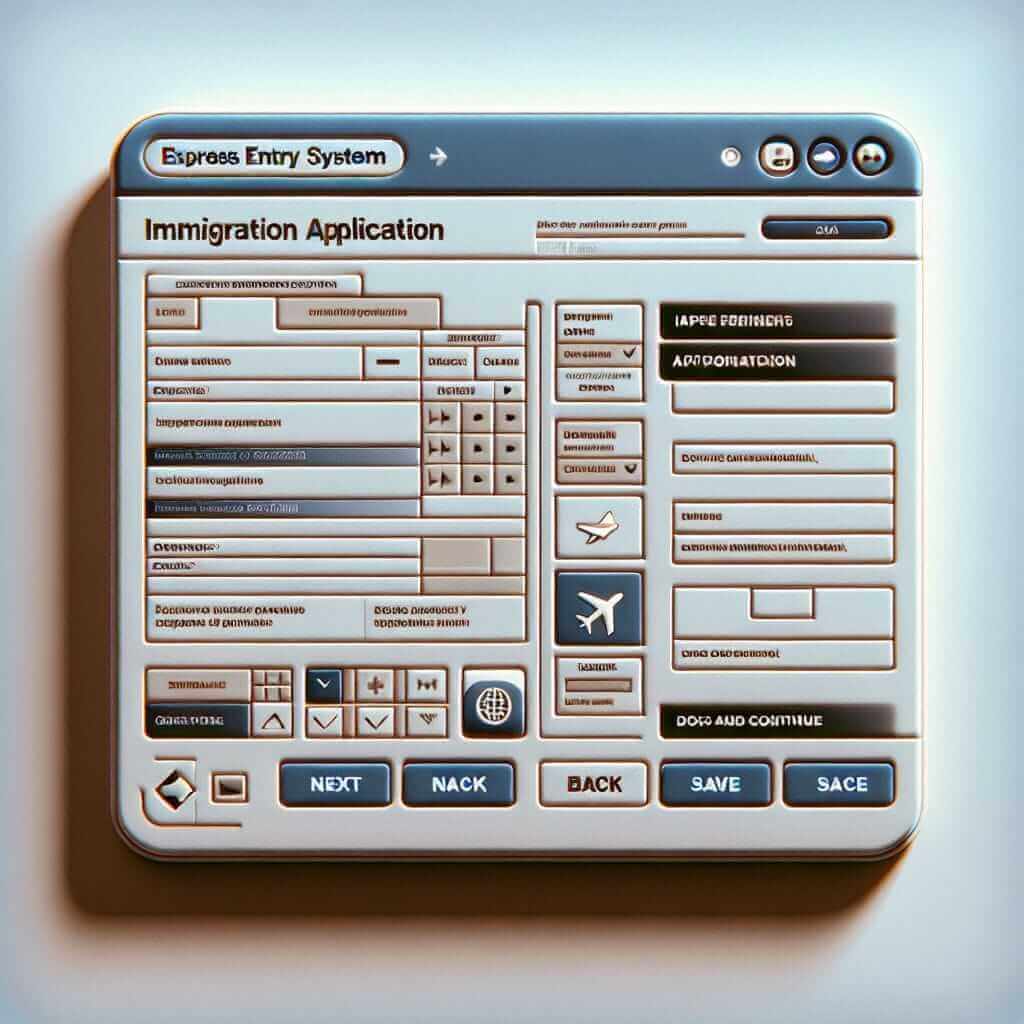For those aiming to immigrate to Canada through the Express Entry system, a high Comprehensive Ranking System (CRS) score is essential. Your IELTS score plays a crucial part in this, directly impacting your CRS points. But what happens if your latest IELTS score is lower than a previous one? Let’s delve into this common concern.
Understanding the Impact of a Lower IELTS Score
The Express Entry system considers your highest IELTS score achieved, even if it’s from a test taken years ago. So, a lower score on a recent test won’t necessarily harm your existing CRS score or profile.
However, there’s a catch. If you’ve already submitted an Express Entry profile with your highest score, a subsequent lower score might raise concerns during the application process. Immigration officers might question the discrepancy and investigate further.
 Express Entry System Canada
Express Entry System Canada
How to Navigate a Lower IELTS Score
Here are some practical tips to handle a situation where your recent IELTS score is lower than a previous one:
1. Don’t Panic:
Remember, your highest score still counts. If you’re yet to submit your Express Entry profile, don’t include the lower score. Focus on improving your skills and retaking the test to achieve a score you’re confident with.
2. Be Transparent:
If you’ve already declared your previous higher score in your profile and a subsequent test yielded a lower result, it’s crucial to be transparent. Provide a brief explanation in your application’s “Letter of Explanation” section. Highlight any factors that might have affected your performance, such as test anxiety or a lack of recent practice.
3. Focus on Other Areas:
While a strong IELTS score is important, it’s not the only factor determining your CRS score. Explore other avenues to strengthen your profile, such as:
- Gaining more work experience: Even a few additional months of work experience in your field can boost your points.
- Enhancing your education: Consider pursuing further education or obtaining a Canadian equivalency assessment for your existing qualifications.
- Improving your language proficiency in French: Demonstrating proficiency in both English and French can significantly increase your CRS score.
Example Scenario
Imagine you scored an 8 in Listening and a 7 in each of the other IELTS sections two years ago. You submitted your Express Entry profile with this score. Recently, you retook the IELTS and scored a 7 in Listening and Speaking, and a 6.5 in Reading and Writing.
In this case, you don’t need to update your profile with the lower score. Your previous higher score still stands. However, if you’re asked about your IELTS history during an interview, be honest about both attempts and explain any reasons for the discrepancy.
Tips for IELTS Success
- Consistent Practice: Regular practice is key to acing the IELTS. Familiarize yourself with the test format and practice all four sections diligently.
- Focus on Weak Areas: Identify your weaker areas and dedicate more time to improving them. Seek guidance from experienced IELTS tutors or utilize online resources.
- Mock Tests: Simulate the test environment by taking timed mock tests. This helps gauge your progress and identify areas requiring further attention.
Conclusion
A lower IELTS score doesn’t necessarily spell disaster for your CRS. Remember that your highest score is taken into account. However, transparency and continuous improvement are key. Focus on building a strong profile through various avenues, and don’t let a single test score deter you from achieving your Canadian immigration goals.


